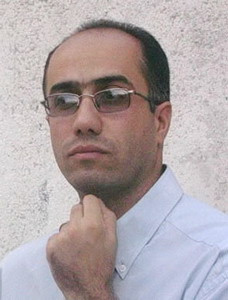War in South Ossetia and Immature Societies
Morteza Kazemian’s article about the war in Georgia for Iranian Diplomacy

The shaky foundation of rationality and critical thinking in some civil societies helps political systems to realize their desired projects, regardless of all its heavy expenses
Walter Benjamin, well-known intellectual of the Frankfurt school of critical theory believes that demolitions of war prove that societies haven’t become mature enough to embed technology, and technology hasn’t developed sufficiently to control inner forces of the society.
With Medvedev’s order, Russian troops have stopped military operations against Georgian forces in South Ossetia after Moscow’s primary goals have been achieved, the Georgian army has been battered and European Union decided to take a more serious role to resolve this regional crisis.
Moscow’s short war against Tbilisi broke out after months of verbal attacks, weeks of tension and small-scale strife in the border between South Ossetia and Georgia, and following Georgia’s attack on Teskhinvali. Thousands of people killed or injured was the outcome of another war that just like any other war shocked the world in the third millennium. Pictures of fully-armored soldiers, demolished buildings and smoke rising from ruins in Teskhinvali, Guria, Poti and Tbilisi looked more like a new war movie for audience. But after the initial shock, they believed they’re watching a real, all-out war; one that quickly set a high record of civilian and military victims in a few days.
On the one hand, the pro-West president of Georgia –Mikheil Saakashvili- starts an adventurous game and decides to finish the story of separatism in Abkhazia and South Ossetia. Due to his wrong calculations, the Georgian president plunged Georgia into an unequal war in which the winner and loser were predetermined. On the other hand, Dmitri Medvedev and Prime Minister Vladimir Putin gave a blowing response to Georgia. The reason? To perpetuate new Russian nationalism, cement its hegemony and geopolitical situation in Caucasus, highlight Kremlin’s role in international relations and push Russia higher in the global pyramid of power.
That’s how Caucasus became the battleground Tbilisi and Moscow to increase power, establish identity and add to their credibility. Ignored here are the mass of civilians killed or injured by Russian and Georgian shells.
The world confoundedly witnesses the naked violence of war once again. The modern world is paradoxically witnessing barbarian behaviors. The only difference is the new military technologies used, in addition to the prompt TV coverage of war. Multiple satellite channels, along with internet, report the war immediately and picture awe of the generals and soldiers.
As Walter Benjamin argues, societies haven’t reached maturity. There are many societies that have undergone the process of modernization but they are not committed to requirements of modernity (including rationality and critical thinking) yet. Superficies of modernity and hi-tech hide irrational, egoistic and authoritative nature of political systems gaudily. Meanwhile, unstable civil societies in some countries become victim of rulers’ quest for hegemony and adventure.
From another point of view, ‘underdeveloped’ societies -unaware of the reality and engaged within a superficial –and in cases highly simplistic- interaction with outputs of undemocratic or authoritative regimes- suddenly find themselves in the middle of a challenge that may be as devastating as a bloody war. In other words, despite the superficially modern situation and relations based on technology, the shaky foundation of rationality and critical thinking in the civil society helps political systems to realize their desired projects, regardless of all its heavy expenses.
That’s how a country is afflicted by devastation of the war. Civilians and young soldiers become the victim of struggle between rulers. The world tastes violence at its extreme and death replaces life. Immature societies have no way to escape these costs, neither does the world.

